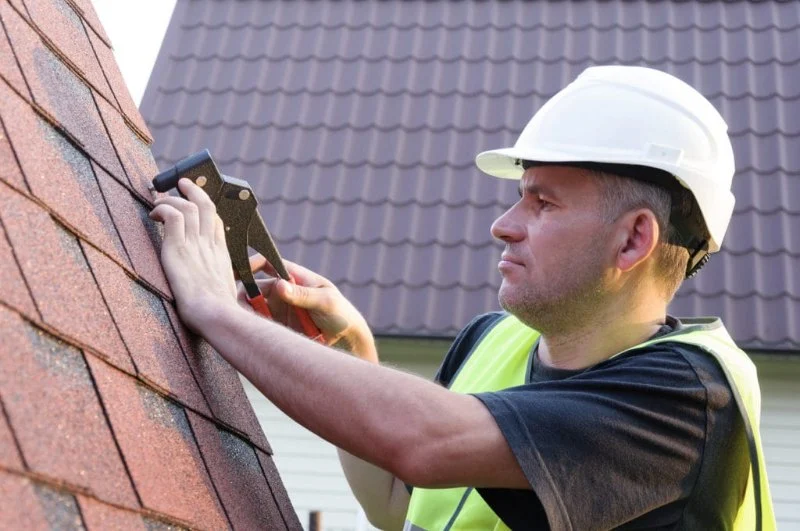
- 1 - Common Roofing Scams to Watch Out For
- 2 - High-Pressure Sales Tactics in Roofing
- 3 - How Free Roofing Inspections Can Be a Scam
- 4 - How to Avoid Roofing Scams and Protect Your Home
- 5 - Real-Life Case Study: How a Homeowner Avoided a Roofing Scam
1 - Common Roofing Scams to Watch Out For
Roofing scams are unfortunately quite common, especially in areas with frequent storms or high demand for repairs. Many homeowners fall victim to fraudulent contractors, leading to costly repairs and damaged property. The most common types of roofing scams include:
1. Storm Chasers: These are contractors who come knocking after a major storm or natural disaster. They often claim that your roof needs immediate repairs due to storm damage, even if it’s perfectly fine. They may ask for upfront payments, only to disappear once they’ve received the money.
2. Fake Damage Claims: Some unscrupulous contractors will exaggerate or fabricate roof damage in order to sell unnecessary repairs. They may try to convince you that your roof is in dire need of a complete overhaul when it’s actually in good condition.
3. Poor-Quality Materials: Another scam involves using subpar materials while charging for high-quality ones. These contractors may promise you premium roofing materials but deliver cheap, low-grade options that will not stand the test of time.

Peak Custom Remodeling
Owings MillsBaltimore CountyMaryland
300 Red Brook Blvd, Owings Mills, MD 21117, USA
2 - High-Pressure Sales Tactics in Roofing
One of the most common tactics used by dishonest roofing contractors is high-pressure sales. They create a sense of urgency to force you into making hasty decisions, often through the following methods:
1. “Limited Time” Offers: Scammers may tell you that their services are only available at a special price for a limited time, pressuring you to sign a contract on the spot. This rush can lead homeowners to make decisions they later regret.
2. Bullying and Threats: Some scammers may try to intimidate you by claiming that your roof will cause severe damage to your home if not fixed immediately. They use scare tactics to get you to agree to repairs that may not be necessary.
3. Overstating Costs and Services: High-pressure salesmen may exaggerate the amount of work required or inflate the costs of materials and labor. By the time you realize the overcharge, they’ve already taken your money and possibly done subpar work.

Smarter Construction
Hamilton TownshipMercer CountyNew Jersey
640 Schiller Ave, Hamilton Township, NJ 08610, USA
3 - How Free Roofing Inspections Can Be a Scam
While many reputable roofing companies offer free inspections, some scammers use this as a tactic to gain access to your home and deceive you into paying for unnecessary repairs. Here’s how free roofing inspections can be a scam:
1. Fake Inspection Reports: After offering a "free" inspection, the contractor may provide a report detailing non-existent damage, claiming that urgent repairs are needed. These fabricated reports can pressure you into signing an agreement for expensive services.
2. Inadequate or Shoddy Work: Some scammers use the "free inspection" as a way to offer a subpar service. They may inspect your roof quickly and without care, making it look as though repairs are necessary when, in fact, there’s no real damage.
3. Upfront Payment Requests: If the contractor asks for upfront payment following the free inspection, it’s likely a scam. Reputable contractors only request payment once the work is completed and you’ve approved the job.
4 - How to Avoid Roofing Scams and Protect Your Home
Protecting yourself from roofing scams requires vigilance and knowledge. Here are several strategies to ensure you hire a reputable roofing contractor:
1. Do Your Research: Always check the contractor’s credentials. Verify their license, insurance, and reputation through online reviews, the Better Business Bureau (BBB), and word-of-mouth recommendations. A legitimate contractor will have a solid track record and positive customer feedback.
2. Get Multiple Estimates: Never settle for the first estimate you receive. Getting multiple bids allows you to compare prices, services, and materials. Be wary of any estimate that seems significantly lower than the others, as it may be a sign of poor-quality work or a scam.
3. Ask for References: A trustworthy contractor should be able to provide references from past clients. Contact these references to get feedback on their experience with the contractor, and ask if the work was completed as promised.
4. Be Cautious with High-Pressure Tactics: If a contractor is rushing you to sign a contract, offering “limited-time” deals, or using scare tactics, walk away. Reputable contractors will give you the time to make an informed decision and never pressure you into an agreement.
5 - Real-Life Case Study: How a Homeowner Avoided a Roofing Scam
Consider the story of Mark, a homeowner in Florida who was approached by a storm chaser after a recent hurricane. The contractor promised a “free inspection” and claimed that his roof was severely damaged. Mark was pressured into signing a contract on the spot, but he decided to do his research before making any payments. He got multiple estimates from other contractors, who confirmed that his roof was in good condition and didn’t need immediate repairs. By being cautious and not falling for high-pressure sales tactics, Mark saved thousands of dollars and avoided a costly roofing scam.
Roofing scams can be costly and stressful, but by staying informed and taking precautions, you can protect yourself from fraud. For reliable roofing services and advice, visit BeachCo Roofing Hub to find reputable contractors and resources to guide your decision-making process.

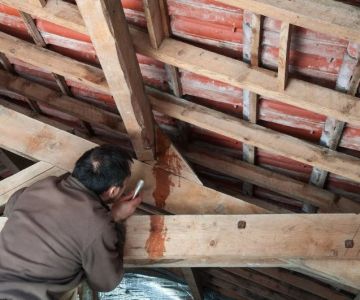

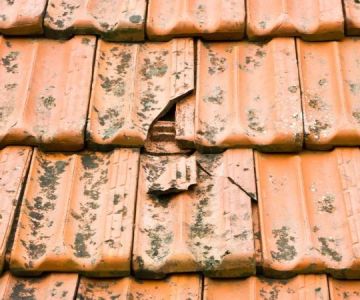
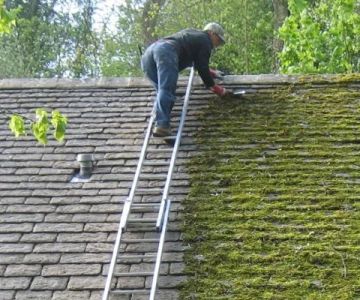
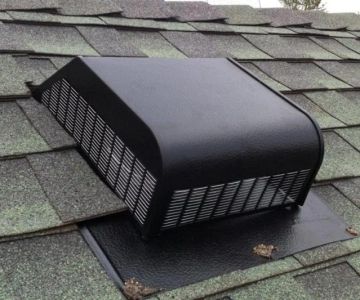
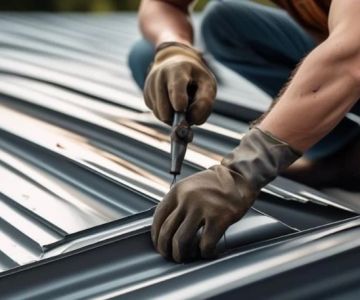
 Long Island Precision Roofing5.0 (175 reviews)
Long Island Precision Roofing5.0 (175 reviews) AMDG Exterior Contracting4.0 (116 reviews)
AMDG Exterior Contracting4.0 (116 reviews)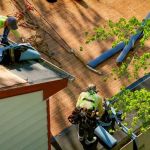 Bumble Roofing of Greater Philadelphia4.0 (68 reviews)
Bumble Roofing of Greater Philadelphia4.0 (68 reviews)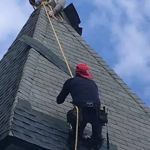 Bayview Roofing NY4.0 (32 reviews)
Bayview Roofing NY4.0 (32 reviews)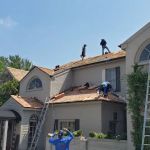 Marathon Restorations4.0 (44 reviews)
Marathon Restorations4.0 (44 reviews) Best Way Roofing LLC4.0 (213 reviews)
Best Way Roofing LLC4.0 (213 reviews)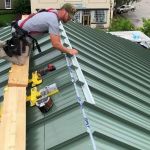 How to Install Roof Shingles in High Wind Conditions: Tips for Secure Installation
How to Install Roof Shingles in High Wind Conditions: Tips for Secure Installation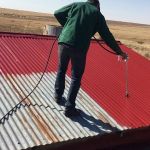 How to Paint a Roof: Is It a Good Idea and What Paint to Use?
How to Paint a Roof: Is It a Good Idea and What Paint to Use?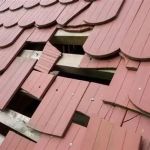 The Difference Between Roof Repair and Roof Restoration: Which Option is Best?
The Difference Between Roof Repair and Roof Restoration: Which Option is Best? The Lifespan of a Roof Under Extreme Heat Conditions: What You Need to Know
The Lifespan of a Roof Under Extreme Heat Conditions: What You Need to Know How to Choose a Roofing Material for High Wind Areas
How to Choose a Roofing Material for High Wind Areas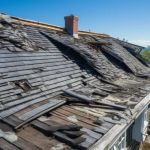 How to Identify and Repair Roof Damage from Sea Spray in Coastal Homes
How to Identify and Repair Roof Damage from Sea Spray in Coastal Homes